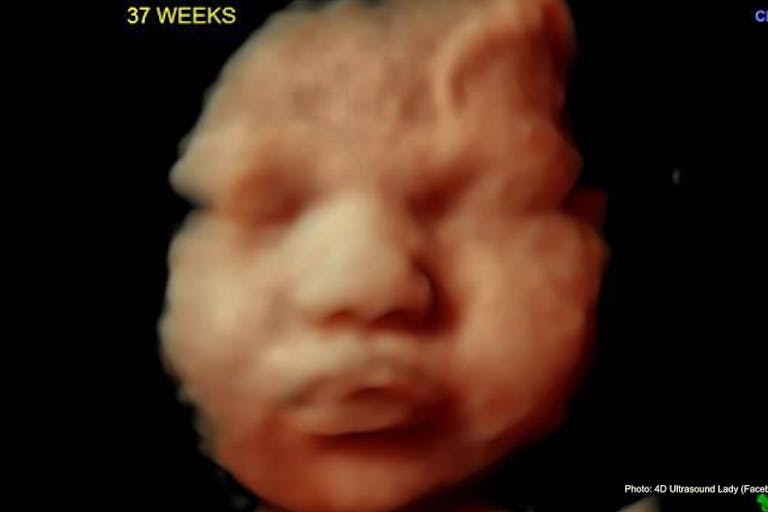
Prosecutors drop charges against Polish doctor who aborted baby in ninth month
Nancy Flanders
·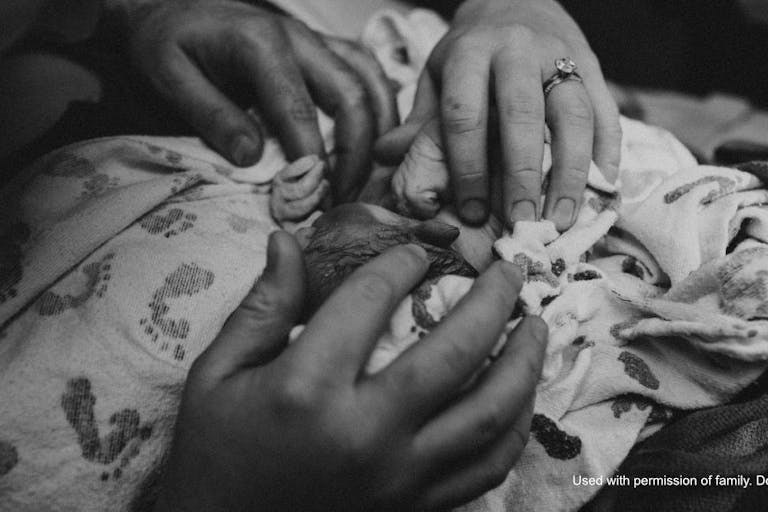
Human Interest·By Bettina di Fiore
Mom says all babies with Trisomy 18, like her stillborn daughter, deserve ‘care and dignity’
Upon request, the names have been changed to protect privacy.
On August 19, 2023, Hannah Miller* took a pregnancy test. She says she did so “honestly for fun,” because she did not believe she could possibly be pregnant yet, since she and her husband Mike* had only been married since July 1. Much to her surprise, however, the test was positive.
“I couldn’t believe it,” she told Live Action News.”I played my baby [a worship song] and praised God with her.”
The Millers wanted to minimize medical interactions and interventions during their pregnancy and pursue a more natural pregnancy and childbirth plan. To that end, they eschewed genetic testing and early ultrasounds, and relied on a midwife for early prenatal care.
In December 2023, however, Hannah underwent a 20-week anatomy scan. Her midwife found signs of spina bifida and referred them to a maternal-fetal medicine (MFM) specialist in Dallas, near where the Millers lived, who ultimately confirmed the diagnosis.
Because the Millers wanted to pursue fetal surgery to correct their baby’s spina bifida, they were required to undergo prenatal genetic testing. These tests were positive for Trisomy 18, which disqualified them from being eligible for in-utero corrective surgery.
Because heart problems are common in children with Trisomy 18, the Millers were referred to a fetal cardiologist, who diagnosed their baby with a heart condition known as atrioventricular canal defect. According to Miller, the cardiologist said the Millers’ baby would require postnatal surgery to save her life, but also said that she knew of no doctors within the Dallas-Fort Worth area who would be willing to operate on a baby with Trisomy 18. She told the Millers that the only doctor she knew of who would likely be willing to help was a surgeon at Dell Children’s Hospital in Austin.
Determined to do everything they could to fight for their child’s life, the Millers contacted Dell Children’s Hospital on February 2, 2024. Over the next few weeks, they met with multiple Dell staff members and began making plans to have their baby at the hospital’s special delivery unit (SDU).
“We are here to help you.”
About a month and a half later, Miller spoke to a MFM specialist at Dell, who outlined the requirements with which the Millers would have to comply in order to give birth at Dell’s SDU. The Millers readily assented to these conditions.
Then, on April 2, they met with an obstetrician-gynecologist who advised them of his team’s non-negotiables for providing care, to which the Millers agreed. They discussed each part of their birth plan with this doctor, and, though a few aspects of their plan required a bit of negotiation and modification, an agreement was ultimately reached, Miller said.
The Millers went on to meet with Dell’s NICU team and the nurse navigator assigned to them, with whom they went over their birth plan. Miller recalled that none of these staff members raised any objections.
The Millers were particularly pleased with their interactions with their nurse navigator, who treated them with “great warmth and compassion,” according to Miller. On April 3, they had an extended phone call with her, again outlining their birth plan and preferences. About two weeks later, they provided her with a written copy of their birth plan, which Miller understood to be a list of preferences and requests, not demands. Miller said she regarded their birth plan as a sort of “wish list,” and knew that she would not be granted every request.
Their nurse navigator reportedly told the Millers that the birth plan was well-written, and that it would be helpful to the team at Dell.
Four days later, on April 19, their nurse navigator notified the Millers via email that she would be out of the country on vacation for a few days. “I will reach out once I return to the country,” she wrote. “We are here to help you.”
Sudden about-face
Later the same day, the Millers reportedly received an email from Dell’s chief nursing officer – someone with whom the Millers say they had never previously interacted. The message said that Dell was “unable to safely meet [the Millers’] birthing requests.” Without detailing any specifics, it stated that the Millers’ birth plan was unacceptable. In spite of the fact that the Millers had already been given firm indications that their requests were acceptable – although not entirely implementable – and even though the Millers had agreed to be flexible, the email informed them that they would not be permitted to deliver at Dell.
Article continues below
Dear Reader,
In 2026, Live Action is heading straight where the battle is fiercest: college campuses.
We have a bold initiative to establish 100 Live Action campus chapters within the next year, and your partnership will make it a success!
Your support today will help train and equip young leaders, bring Live Action’s educational content into academic environments, host on-campus events and debates, and empower students to challenge the pro-abortion status quo with truth and compassion.
Invest in pro-life grassroots outreach and cultural formation with your DOUBLED year-end gift!
The Millers say they immediately called the chief nursing officer and told her that they were willing to modify their birth plan in any ways the hospital deemed necessary and asked which aspects of it were problematic. The chief nursing officer, however, did not provide any specifics.
Later, the chief nursing officer called the Millers back and informed them that Dell was standing by its decision to refuse care. Miller says that although she attempted to work things out, the chief nursing officer hung up on her and subsequently blocked the Millers’ calls.
The next day, the Millers called the SDU twice, trying to get clarity on the situation. Each time, they were reportedly told someone from leadership would call them back. Each time, they waited for the promised follow-up call in vain.
On their third attempt to reach out by phone to the SDU, the Millers were transferred to someone in security who told them to cease and desist contact attempts or face harassment charges.
“I was just left scrambling”
The Millers had no further contact with the SDU. However, after “several days of waiting and unanswered emails,” Dell’s NICU team reached out to the Millers – on Miller’s due date – to inform them that, although SDU delivery was still not an option, the NICU staff was nonetheless willing to provide the postnatal care their baby would need, should they choose to transfer her to Dell following delivery elsewhere.
The conversation also revealed that the team at Dell had essentially misunderstood the Millers’ wishes with regard to their birth plan, and had not properly comprehended the couple’s level of flexibility.
Miller described the NICU team as “compassionate,” but expressed frustration with her experience with the SDU.
“I didn’t have counsel or advice, and I didn’t even know what part of my birth plan they were concerned about. I was just left scrambling,” she told Live Action News. “My birth plan was a plan to give my daughter a chance at natural labor, but not at the expense of her life…. If someone would’ve understood that, and also worked with us on a plan to have measures in place to protect her as we attempted that, I think things would’ve been different.”
Ultimately, the Millers delivered at another hospital on May 8. Tragically, their daughter was stillborn.
The Millers shared more details about their daughter’s birth in her obituary:
We marveled over her, held her, stroked her beautiful hair, touched her perfect nose, kissed her lips. We were in awe. In love. Over the moon to finally see our precious daughter.… She was held and loved for hours. She had a beautiful Christening while everyone was together and the priest lifted her up to heaven and baptized her in the name of the Father, Son and Holy Spirit.
[She] is our first born, precious daughter. An image bearer of the King of the universe. She was all ours. Mommy would carry her 1,000 times just to know her, to behold her.… Our time with her was a gift from heaven. It could never be replaced and we wouldn’t trade anything for every second we had with our daughter.
“A gift from God”
After everything the Millers went through, what they want to emphasize is the value of their daughter’s life, and that of all babies with Trisomy 18. “My wish is that every baby with Trisomy 18 would be loved and cared for and given every intervention, every hope, and given the care and dignity that would be given to other children,” Miller told Live Action News. “I hope people know that a Trisomy 18 child is a gift from God and an honor to hold and to know.”
“I don’t get to live my life anymore with my child,” she concluded, “but her dignity and her impact on my life and my husband’s life in the ten months we had her would be worth dying for.”
*Names have been changed to protect privacy.
Live Action News is pro-life news and commentary from a pro-life perspective.
Contact editor@liveaction.org for questions, corrections, or if you are seeking permission to reprint any Live Action News content.
Guest Articles: To submit a guest article to Live Action News, email editor@liveaction.org with an attached Word document of 800-1000 words. Please also attach any photos relevant to your submission if applicable. If your submission is accepted for publication, you will be notified within three weeks. Guest articles are not compensated (see our Open License Agreement). Thank you for your interest in Live Action News!

Nancy Flanders
·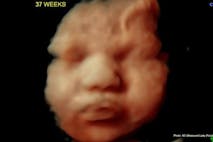
Politics
Nancy Flanders
·
Human Interest
Angeline Tan
·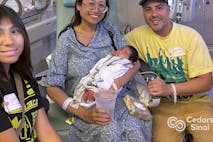
Human Interest
Bridget Sielicki
·
Human Interest
Nancy Flanders
·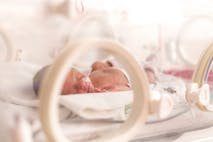
Human Interest
Nancy Flanders
·
International
Bettina di Fiore
·
Human Rights
Bettina di Fiore
·
Politics
Bettina di Fiore
·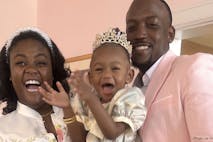
Human Interest
Bettina di Fiore
·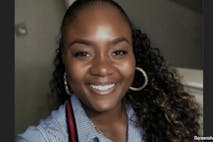
Activism
Bettina di Fiore
·